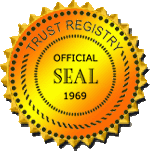Offshore Trusts
Option OneDoing business with an international offshore trust or group of trusts can be simple or complicated, depending on you and your estate planner. There are legal and tax considerations, but it can be very profitable and practical to manage if you have the proper legal expertise guiding you. Because private asset protection planning is complex, it helps to understand exactly who can benefit from an offshore trust:
Much is written about the offshore trust. Created in a jurisdiction that is debtor friendly, it is often offered as the perfect solution for the client who wants to protect his assets from both current and future creditors. Offshore Asset Protection Planning is usually offered by financial institutions, lawyers, banks, stock companies, and "experts", who allegedly specialize in this area. Most often, they are really attempting to manage or park your assets with them and their investments may be risky, intangible, complicated, overly expensive, or outright frauds. For example, the topic of offshore trusts often involves tax abuse and criminal activity. Tax shelters are often frauds that have not been tested, reviewed, or investigated. It takes years for the truth to surface, and promoters have fantastic results in the first few years. An offshore asset protection trust is typically an irrevocable trust established in a jurisdiction outside of the United States which has adopted laws that are particularly beneficial to debtors and, conversely, very burdensome to creditors seeking to reach the assets of the trust.
More Asset Protection...For years the offshore asset protection trust has been the preferred method of obtaining the greatest level of protection for the client. However, such trusts are only viable if there is a substantial amount of assets that can be committed to the protection plan. The cost of setting up the trust combined with the continuing trustee fees make it a viable alternative only if there are enough assets to justify the cost.Be aware that Corporations, LLCs, and Trusts set up outside of your state will not necessarily protect assets within your own state. And other state LLCs and Corporations usually incur fees and taxes in both your own state, as well as the state of origin. In recent years, as the domestic asset protection industry has gained traction, more and more asset protection planners are establishing domestic Private Asset Protection Trusts. Some eleven states are now trying to gain investors and have now adopted laws geared to compete with the offshore asset protection community. 
Even More Asset Protection...Create separate trusts for separate assets or individual investments.See more...
The Protection Book for Planning, Protection, Privacy!Copyright © 1995 -
 
|